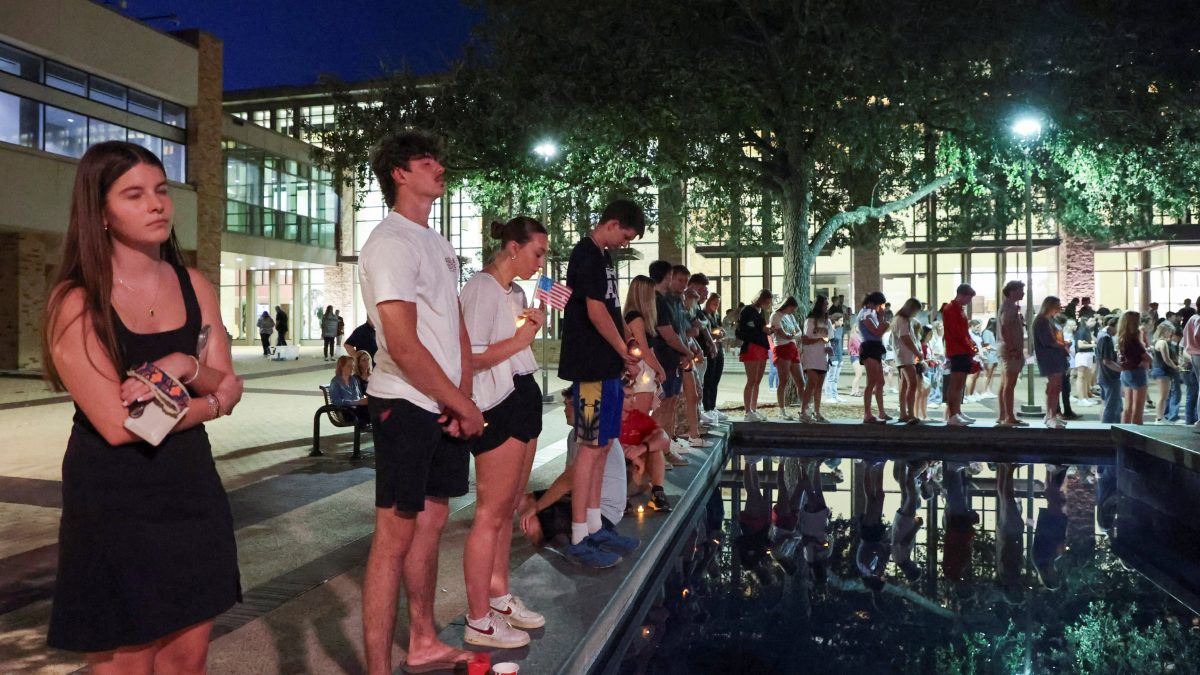Texas A&M University’s president, Mark Welsh, announced his resignation following intense criticism over his handling of a controversy sparked by a children’s literature course that discussed more than two genders.
According to statements released by the university’s Board of Regents on Thursday, Welsh’s last day in office would be Friday. The decision came after the institution dismissed lecturer Melissa McCoul, who had been teaching the course and removed two administrators linked to the programme.
University chancellor Glenn Hegar issued a statement describing Welsh as a man of honour who had served the school with dedication. However, Hegar noted that both he and the Board of Regents agreed it was the right moment for leadership change to position the institution for continued excellence.
Viral video that sparked crisis
The turmoil began when a student filmed herself confronting McCoul during a session of her children’s literature course. In the video, the student accused the lecturer of illegally promoting “gender ideology,” invoking remarks by President Donald Trump, who has repeatedly insisted that his administration would recognise only two genders.
The footage, which was later shared on social media by Republican state representative Brian Harrison, quickly went viral and drew national attention. The student argued that the discussion of a “gender unicorn,” a teaching tool used to explain the difference between gender identity and gender expression, violated her religious beliefs.
McCoul countered in the exchange that what she was teaching was not illegal and that students were free to leave the class if uncomfortable.
Political pressure and institutional response
The video prompted a wave of political criticism, including from Texas Governor Greg Abbott and other Republican leaders who accused McCoul of indoctrination. Welsh reacted by terminating the lecturer the following day, claiming his decision was rooted in academic responsibility rather than academic freedom.
He explained that the material taught in McCoul’s course had strayed from its published description and that allowing such deviations would undermine student trust in the curriculum.
Despite this justification, many saw the dismissal as a blow to academic freedom. Faculty members expressed concern that the move was intended to intimidate instructors into avoiding certain subjects.
Leonard Bright, a professor of public service and administration, remarked that faculty were recognised as the experts in their classrooms and should retain authority over course design.
McCoul, who had over a decade of teaching experience, said through her attorney that her constitutional rights had been violated. She filed an appeal, arguing that her termination had been both abrupt and unjustified, The Washington Post said in a report.
Trump’s influence and federal funding threats
The controversy unfolded against the backdrop of broader national debates over higher education, academic freedom and political influence on university campuses. President Trump has repeatedly threatened to withhold billions of dollars in federal funding from universities that resist his administration’s demands to reshape campus culture. These demands, critics argue, would undermine the First Amendment and academic independence, according to reports.
Texas A&M, one of the largest public universities in the country with nearly 80,000 students, became a flashpoint in this conflict. Republican leaders in Texas have passed laws in recent years increasing their control over university curricula, hiring and student protests, heightening tensions between faculty autonomy and political oversight.
Literature course at the centre
McCoul later clarified that the disputed session was part of a class discussion around Jude Saves the World, a middle-grade novel about a nonbinary character handling friendship, ADHD and community.
She said she had provided background on sex, sexuality and gender in children’s literature to help contextualise the text, noting that similar lessons had been taught in previous iterations of the course without issue. The student confrontation, she argued, had interrupted a recap of those ideas, The Washington Post report said.
Her attorney emphasised that McCoul had been a respected senior lecturer, highlighting her long track record at the university. The sudden dismissal, they argued, not only harmed her career but also sent a chilling signal to other faculty members about the risks of addressing LGBTQ+ themes in the classroom.
Welsh’s background and preceding tensions
Welsh, a retired four-star Air Force general, had taken on the presidency in 2023 after serving briefly as interim president. Before that, he had been dean of Texas A&M’s Bush School of Government and Public Service and had previously served as chief of staff of the Air Force during the Obama administration.
His tenure was not without controversy even before this incident. He had already faced pressure earlier in the year when Governor Abbott criticised the university for hosting a diversity conference. Welsh responded by withdrawing A&M from the event, signalling the difficult balance he faced between political expectations and academic governance.
Faculty and students raise alarm
While political figures celebrated, many within the university community expressed alarm. Some students and faculty argued that the dismissal of McCoul and the subsequent resignation of Welsh reflected growing political interference in higher education.
Bright, the professor at the Bush School, said the resignation was the right move for Welsh personally but added that the institution needed leadership committed to protecting academic freedom from political intrusion.
For faculty, the fear was that political pressure was beginning to dictate what could and could not be taught in classrooms. McCoul’s attorney described the episode as part of a larger campaign to silence discussions of gender and sexuality in education.
A larger national pattern
The fallout at Texas A&M is part of a broader trend across US universities. In recent years, presidents of major institutions such as Harvard, Columbia and the University of Pennsylvania have faced intense scrutiny and, in some cases, have been forced to resign under political pressure.
Conservatives, particularly supporters of Trump’s Maga campaign, have framed higher education as a battleground for what they call “woke ideology,” targeting diversity programmes and courses that explore race, gender and sexuality. Texas A&M University now finds itself at the centre of that struggle.
End of Article

)

